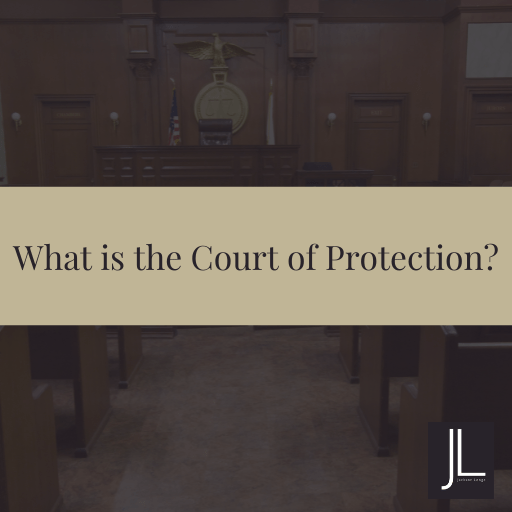
The Court of Protection is administered by HM Courts & Tribunals Service. It is responsible for a range of decisions based on a person’s financial and or welfare matters if, at the time when it is required, they do not have sufficient ‘mental capacity’.
What can the Court of Protection decide?
If the Court of Protection is involved with a person’s affairs, there are a variety of issues that they can make decisions regarding. This includes:
- Deciding whether a person has the mental capacity to make decisions for themselves
- Deciding on ‘deputies’ who will make ongoing decisions for the person in question who lacks mental capacity.
- Giving someone permission to make a one-off decision for the person lacking mental capacity.
- Making decisions in emergent circumstances without delay.
- Making decisions about lasting powers of attorney and enduring powers of attorney.
- Consider applications to make statutory Wills.
- Decide whether the person in question can be deprived of their liberty according to the Mental Capacity Act.
What is a deputy?
As mentioned above, the Court of Protection can assign a deputy to make ongoing decisions for the person who lacks mental capacity and cannot make decisions for themselves. There are two types of deputy; one to manage property and affairs, such as managing bank accounts and bills, and one for personal welfare, such as where someone lives and some decisions about potential medical treatments.
Some conditions must be followed for someone to be eligible to be a deputy. The person must be over the age of 18, not have a criminal record and must not be declared bankrupt. Most commonly, a deputy is a close relative of the person who lacks capacity.
It is possible for two or more people to act as joint deputies.
At Jackson Longe Solicitors, our team understand the complexities surrounding deputyship. Therefore, we would be happy to help by guiding you carefully through the process to ensure it runs smoothly. Contact us today by calling 0208 332 2069 or emailing info@jacksonlonge.co.uk.
What is the difference between a Power of Attorney and a Court of Protection order?
A Court of Protection order is typically used when a Power of Attorney is not in place. A Power of Attorney is generally drafted by a person before they lose mental capacity. With this, they will appoint someone to make welfare and financial decisions, as set out in a document.
Typically, the Court of Protection will become involved in a person’s decisions if they did not already draft a Power of Attorney before they lost mental capacity.
Court of Protection Solicitors Richmond
The team at Jackson Longe Solicitors based in Richmond Upon Thames are happy to assist you with both Lasting Powers of Attorneys and Court of Protection applications.
Please call us on 0208 332 2069, email info@jacksonlonge.co.uk or fill in this enquiry form.